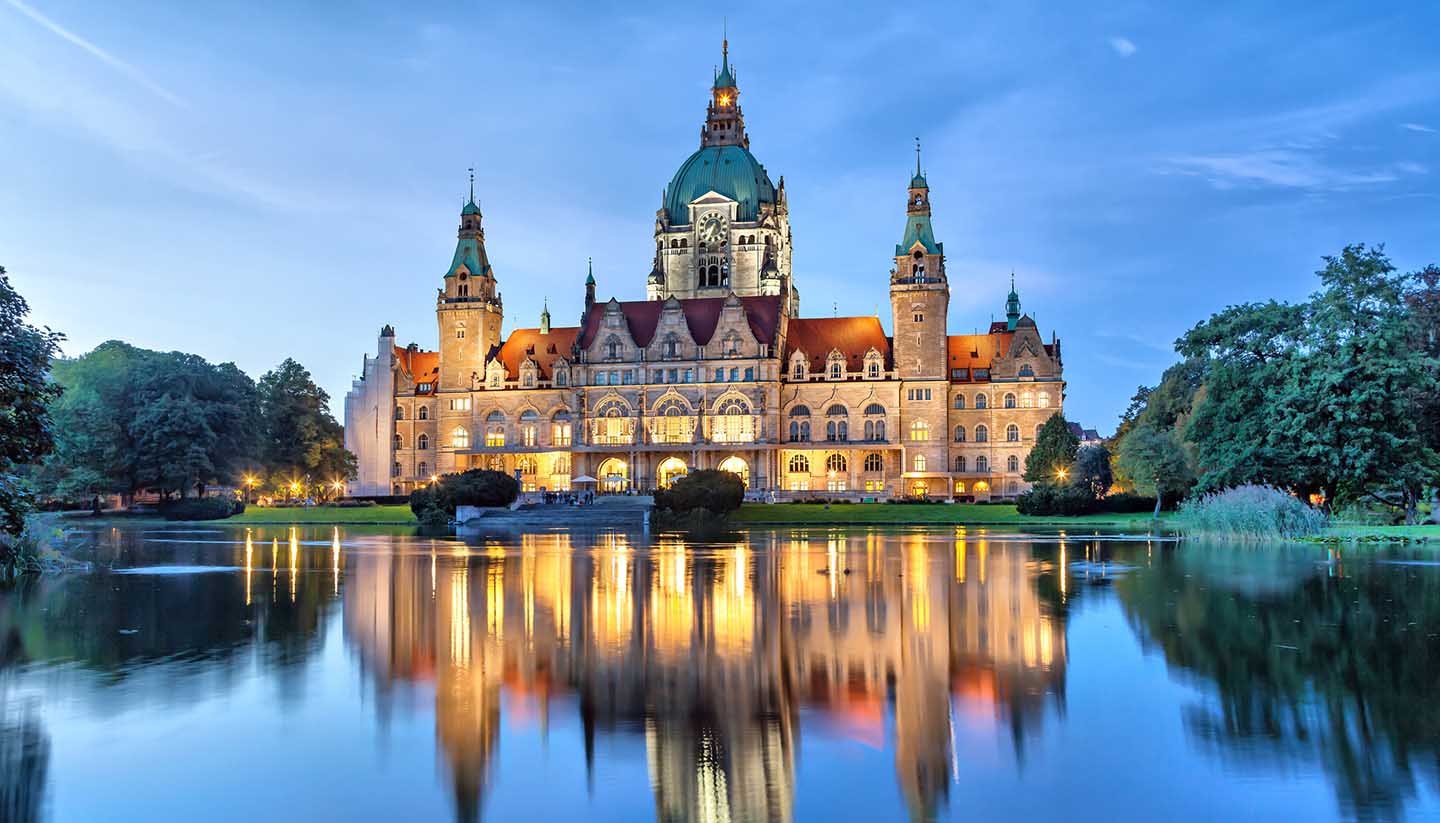Hanover History
Hanover has its roots in the 13th century as a small fishing village perched on the banks of the River Leine. But prosperity came with increasing river trade, much of which was channelled into ecclesiastical building projects and the defensive city gates.
Led by its dynasty of dukes, the city was quick to embrace industrialisation, making the most of its location close to the Harz Mountains to establish itself as a hub for the iron and silver trades. But Hanover might have remained a well-heeled backwater were it not for George, Duke of Brunswick-Lüneburg.
Capitalising on a succession of European wars, he expanded the borders of his lands and became the first prince elector of Hanover by 1708. Another quirk of dynastic fate brought him an even bigger prize – kingship of the United Kingdom, with George ascending to the throne aged 54 in 1714. Hanover drew upon the wealth of the larger realm, establishing itself as a hub for trade.
But the union of Britain and Hanover was not to last and when Queen Victoria took the throne of Britain in 1837, succession laws meant Hanover passed to William IV’s brother, Ernest Augustus.
Small, and lacking the security that only a nation state could provide, Hanover’s existence as an independent entity came just over 20 years later when it was absorbed into Prussia. Trade, however, remained buoyant and by the dawn of the 20th century, it was a mercantile force to be reckoned with.
But dark times were ahead, with the city suffering heavy losses during WWI and becoming an early convert to Nazism as a result. More than 4,700 Jews were deported from Hanover during the WWII, while much of it was flattened by Allied bombing raids.
Things changed once again with the advent of the swinging 60s, which saw Hanover finally put its Nazi past behind it and return to its mercantile roots.
Today’s Hanover is no stranger to the nuances of buying and selling, and the hardy souls who first set up shop in the 13th century would be proud of what their successors have achieved.
Did you know?
• Hanover is the burial place of Britain’s King George I.
• Hanover has Europe's largest urban forest with Eilenriede park.
• The name Hanover comes from Hohe Ufer, meaning ‘high bank’.


